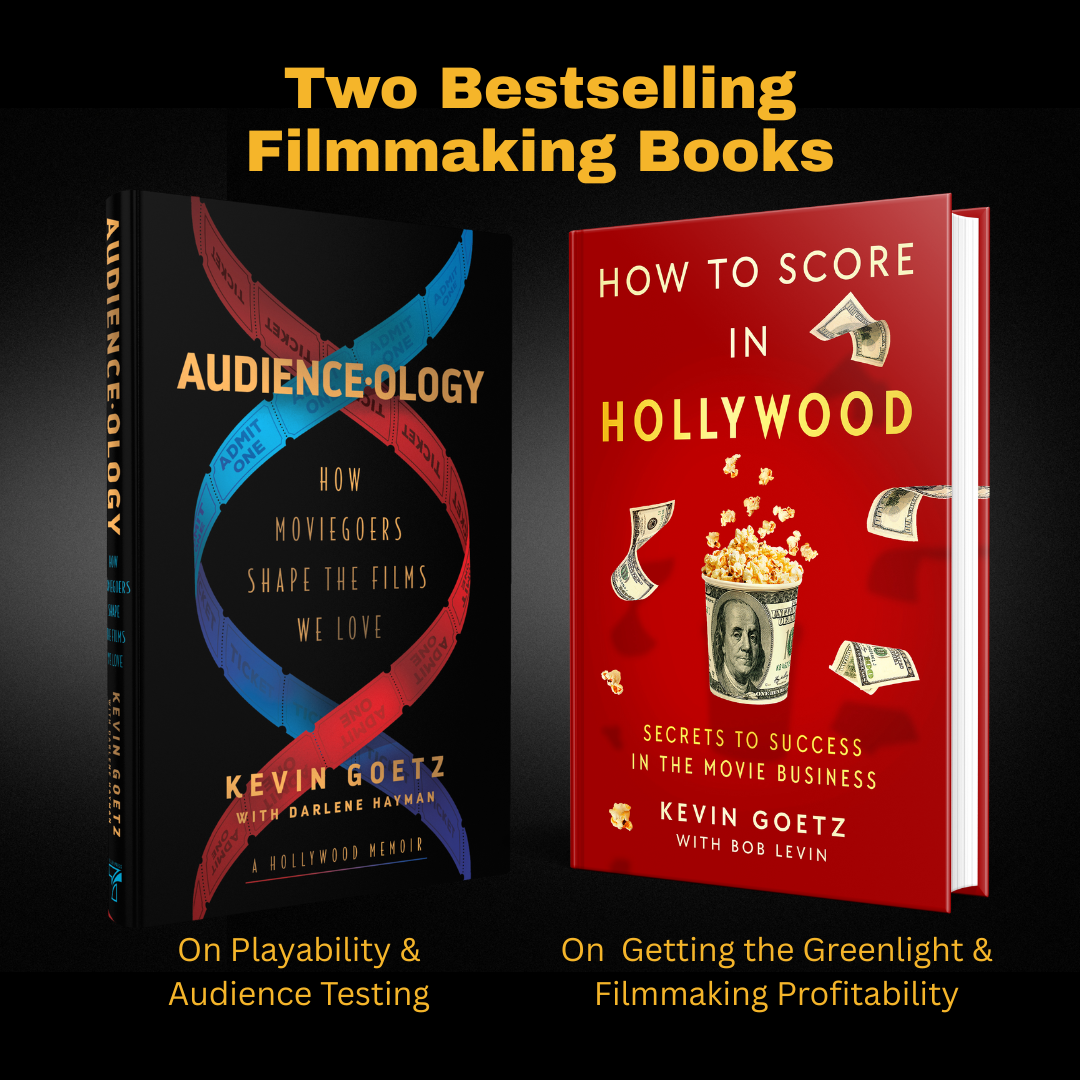Audience•ology
How Moviegoers Shape the Films We Love
Discussion Topics
1
In Chapter 1, Kevin Goetz discusses finding his “and.” He explains how he had always identified as an artist and moved to Los Angeles to pursue his acting career. His part-time job was a means to an end but as he moved up the ladder at the market research company, and eventually launched his own, he came to the realization that he could be an artist and an entrepreneur. Have you discovered the “and” in your life?
2
Test screening research is a way in which the motion picture industry listens to feedback from the people who matter most, the ticket buying public. What lessons can we take from Hollywood about choosing the opinions to trust when making important decisions? Who do you rely upon for constructive criticism, and how have you adjusted your decisions based upon the feedback they have provided?
3
Certain “final cut” directors who do not test their films with a recruited audience feel that typical moviegoers should not hold sway over their creative vision? Do you agree? Why? Why not?
4
In movie screening research, a rating of “very good” is never good enough. Why is it so important to strive only for “excellent” ratings?
5
Several of the filmmakers who shared their stories in Audience-ology faced tough decisions during postproduction and based on what they learned from the test screenings, some sacrificed entire scenes to improve the playability of their movies. Can you think of something you sacrificed, or a painful pivot you had to make to achieve your goal?
6
What insights from Audience-ology might be useful in dealing with highly emotional individuals? Are there any techniques you might try to diffuse a volatile situation? How have you conquered your own demons when your emotions have gotten the best of you?
7
The book highlights examples of films that tapped into the zeitgeist of their time – Fast Times at Ridgemont High, Fatal Attraction and Philadelphia, to name a few. What are other examples of products that leveraged the mood of the culture to achieve success?
8
The author was originally going to title this book “Don’t Kill the Messenger.” Are there any situations where you have been the bearer of bad news and attacked just for delivering it? How did you handle the situation?
9
Many of the filmmakers featured in Audience-ology recount unforeseen obstacles in taking their films to completion. Robert Cort faced a writers’ strike in the midst of Cocktail re-writes and was forced to pen a new ending himself. Jason Blum worked relentlessly to get a distribution deal for Paranormal Activity only to discover the studio had been sold, the deal was off, and he had to start over. Do you think it takes a special kind of person to achieve success in Hollywood? Or is this typical of every industry?
10
What are the advantages and disadvantages of conducting test screenings online versus in a theater?
11
There is a saying in market research that you can win more arguments with facts than with feelings. Do you subscribe to this belief? Why? Why not?
12
The entertainment industry relies upon balancing art with return on investment. Explain how the test screening process speaks to this balance. Does it favor one over the other?




